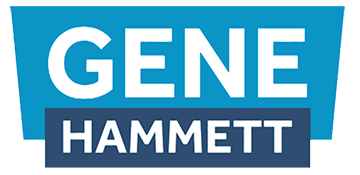In this episode, I sit down with Chris Moran, CEO and founder of Solar Negotiators, to discuss the challenges and strategies of scaling a business while retaining your culture. Chris shares how Solar Negotiators has expanded its operations, completing nearly 60 projects a month, without compromising the core values that define their success. We explore the importance of retaining your culture during periods of rapid growth and how it impacts employee satisfaction and customer experience. Chris provides actionable insights on maintaining organizational identity and cohesion as a company scales. Tune in to learn how retaining your culture can be a driving force for sustainable growth and long-term success.
- Introduction to Leadership
- Scaling Your Company
- The Challenge of Delegation
- Importance of Company Traditions
- Leadership Principles Unpacked
- People First, Then Customers
- Wrapping Up the Conversation
From Marines to Solar: Chris Moran on Leadership, Culture, and Scaling with Purpose
Chris Moran, founder and CEO of Solar Negotiators, shares his unique perspective on leadership and company culture, shaped by his years in the United States Marine Corps. During the interview, he reflects on how early experiences in the military taught him valuable lessons about respecting leaders based on their behavior rather than their rank alone. Moran emphasizes that while traditional military leadership involves a strict chain of command, he seeks to blend that style with a more familial approach in his company, striving to create a supportive environment that retains essential values as the organization scales. Moran explains how Solar Negotiators, which specializes in providing turnkey solutions for energy systems in California, has successfully grown to over 165 employees. He underscores the importance of preserving company culture as the business expands and highlights the necessity for leaders to adapt while maintaining core values. Moran articulates that some elements of culture may indeed evolve as new employees join, which can affect communication styles and operations. He stresses the importance of being proactive in culture management, particularly as growth creates new challenges.
Letting Go to Grow: How Chris Moran Learned to Trust His Team at Solar Negotiators
The conversation delves into key inflection points that challenged Moran’s leadership approach. He candidly shares moments when he had to come to terms with the reality that he couldn’t manage everything alone. This realization sparked the need for delegation and empowered employees to step into their strengths and capabilities. Moran highlights how promoting a culture of constructive feedback and responsibility enables employees to take ownership of their roles. The company’s core values, prominently displayed in the workplace, serve not only as guiding principles but as operational standards that everyone is expected to exemplify.
From Family to Organism: How Solar Negotiators Scales Culture with Ownership & Tradition
Gene Hammett articulates the differences between leadership in smaller and larger organizations, pointing out that as a company grows, it moves from a family-like atmosphere to a more complex, organism-like structure. Moran agrees and describes how traditions, such as annual awards and employee recognition events, help reinforce the organization’s culture even as it scales. He reflects on how essential it is for leaders to model the company’s values consistently, thereby encouraging their teams to do the same. Throughout the discussion, the topic of ownership culture emerges prominently. Moran carefully distinguishes between simply assigning responsibility and fostering true ownership among employees. He shares the analogy of the company being like a living organism, where employees actively work to maintain a healthy culture, recognizing that each person’s contributions affect the whole. This perspective supports the belief that satisfied employees are better equipped to serve customers, emphasizing the cyclical nature of care and performance within the business.
Marine Corps to Boardroom: How ‘JJ Did Tie Buckle’ Defines Leadership at Solar Negotiators
The interview also touches upon Moran’s approach to leadership principles inspired by his Marine Corps background—specifically the acronym JJ Did Tie Buckle, which encapsulates key traits such as judgment, integrity, and decisiveness. He explains how these traits help in cultivating a leadership mindset across the organization. This layered understanding of leadership contrasts with the command-focused nature of the military, where putting people first becomes crucial in a business setting for achieving mission objectives. In concluding, both leaders reflect on the importance of caring for employees as the foundation of long-term business success. They agree that prioritizing employee well-being ultimately benefits customers and drives company growth. This exchange offers deep insights into balancing military-grade leadership principles with nurturing a collaborative and positive work environment—an approach that informs Moran’s successes at Solar Negotiators and resonates profoundly in the realm of modern business leadership.



